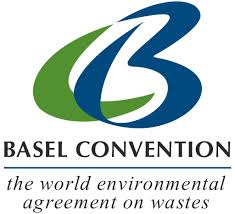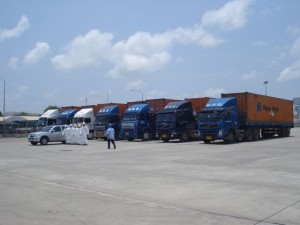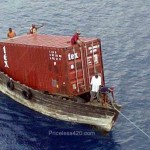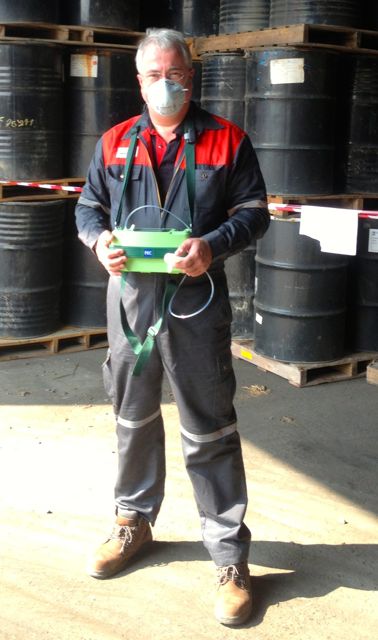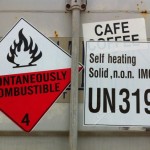Or is it causing more hazardous waste to be disposed of illegally?
The Basel convention was initiated in 1989 to make sure hazardous waste would not end up being dumped in developing countries. It creates a framework of definitions, rules and cooperation between authorities regulating the transboundary movement of hazardous waste.
The Basel convention should make it easy to move waste to a proper disposal facility and difficult to move it anywhere else. But in practice it doesn’t always work out that way and many difficulties are encountered before hazardous waste can be moved to the right destination.
Following some examples of the hurdles that have to be taken based on almost a decade of moving hazardous waste.
Some definitions first; when we talk about waste we have a “waste generator” that is responsible for proper disposal of it’s waste and remains that under the Basel framework until the “disposal facility” signs of for final disposal. In every participating country there is an “authority” that is responsible for the execution of the Basel convention. And there are other involved parties providing services or executing other regulations like shipping lines, booking agents, consultants, trucking companies, railroads, customs, other local authorities, etc.
Some of the difficulties encountered
Waste generators often have no idea where to go with their waste due to lack of information. In many cases the presence of hazardous elements is ignored to avoid the issue and the cost. You can always ignore what you don’t measure or check and act surprised if caught. The best guarantee for proper waste disposal is the involvement of global operating companies with public traded shares. They can’t afford negative press and the potential effect on share prices is insignificant compared to the cost of responsible waste disposal.
Authorities
Under the Basel framework you need permission from all involved authorities before you can start moving hazardous waste. The involved authorities are:
The country of origin
The application procedure starts with the authorities in the country of origin of the waste with the complete information package that can easily be over 100 pages of documents. In some countries the authorities have little or no knowledge about the procedure or try to exploit the occasion of a Basel waste movement application. As an example by demanding to audit the destination facility, whereas the destination facility is under responsibility of the authorities in the destination country and there is no reason under the Basel framework for them to audit this facility. It does however result in nice pictures on Facebook and considerable extra cost and wasted time for the waste generator. More issues can come from other local authorities that require additional permits to move waste inside the country and customs that have requirements that are often not in line with each other.
The country of transshipment, if applicable
Often there is no direct connection between the country of origin and destination. In such cases it’s necessary to plan a transshipment where the cargo moves from one vessel to another. The issues here are that different countries and sometimes different ports have different rules and demands. Some countries, like Singapore for example require a local agent and a security deposit. The maximum duration of the cargo being in the transshipment port differs per port and country, 3 days, 7 days, 10 days, hard to plan with shipping lines.
The countries that the shipment passes trough
This is when a ship is just visiting a port with your cargo on board.
All these authorities need to give permission, but some never react. Contact data not up to date, a revolution or civil war going on, mailbox full, staff changes, department moved, etc.
Some authorities require a payment, but don’t send an invoice. Some react only by email, but require information only by fax or postal service. Some react only by postal service, but don’t realize that it takes a month to reach the addressed. Some communicate only in their own language, not handy as not everybody reads German or Portuguese.
The country of disposal
In the destination country it’s not always clear what the responsible authority is. The Basel convention lists the national authority but in some countries part of the execution of the Basel convention is distributed to the province or state where the disposal facility is located and they are not mentioned anywhere. In general the country of disposal sends an invoice too, again often in their native language only and by postal service. You receive it when the payment term has passed, so a reminder with a fine follows with a term also before the arrival date.
All together a lot of difficulties before you have permission to start the actual process of moving waste. Time consumed in the application process is 3 months minimum to a year in some cases!
Than you get to work with the others
Shipping lines and logistic companies
Several incidents in the past years caused shipping lines and ship captains to become much more aware of their risks and liabilities. Some of these incidents involved hazardous waste and many shipping lines are refusing to transport waste by now. The ones that still accept have driven up the prices to insane levels and shipments can only be booked over a handful of specialized agents. Their local offices often have no experience with hazardous waste and the amount of people and departments involved, time and language differences, makes it very difficult to keep things under control.
Requirements for documentation, stowage and securing of the cargo, etc. are often changed per shipment and at last notice making it hard to meet deadlines.
I don’t go in details on land transport by truck or rail only by mentioning that even within the European Union there are 3 different regulations on how to secure cargo in a truck or container.
Hazardous waste is still ending up in wrong places!
Considering the amount of difficulties encountered in moving hazardous waste and the very few people that have enough knowledge and experience to complete the whole process it’s obvious that a lot of hazardous waste still ends up where it shouldn’t.
Solutions
How to make it easier and assure that more waste is arriving at proper disposal facilities?
To the Basel convention organization my suggestions are:
Stronger coordination between the country authorities so that all have the knowledge, or access to it and all use the same rules and procedures. This should also include a reporting mechanism for discrepancies and methods of enforcement in case of violations of the rules.
Set up an automated system that facilitates the process of applying for permissions. In this system a waste generator or service provider logs on, provides the details of the intended waste movement, uploads files, etc. The system automatically dispatches the information to the authorities in the country of origin, transshipment countries and the destination country. The system tracks if the information is received and processed by all involved. In this way the contact data of all authorities is updated and registered in one place. This system could also clear payments of fees between the parties and possible also provide the security deposits. Once permission for the waste movement is granted the system can be used to transfer the required information between all parties until final disposal. The system will also provide accurate information about global waste movements and make it easier to spot discrepancies and changes.
Increase participation of other involved parties like shipping lines, specialized agents, service providers, consultants, waste generators, waste disposal facilities, etc. Possible this can evolve in a system of certified and trusted parties reducing the risks for all involved in handling and moving hazardous waste.
Initiate a whistle blower option where cases of mismanagement of waste can be reported if necessary anonymous. The environment is everyones responsibility and it shouldn’t be easy to mess with it.
